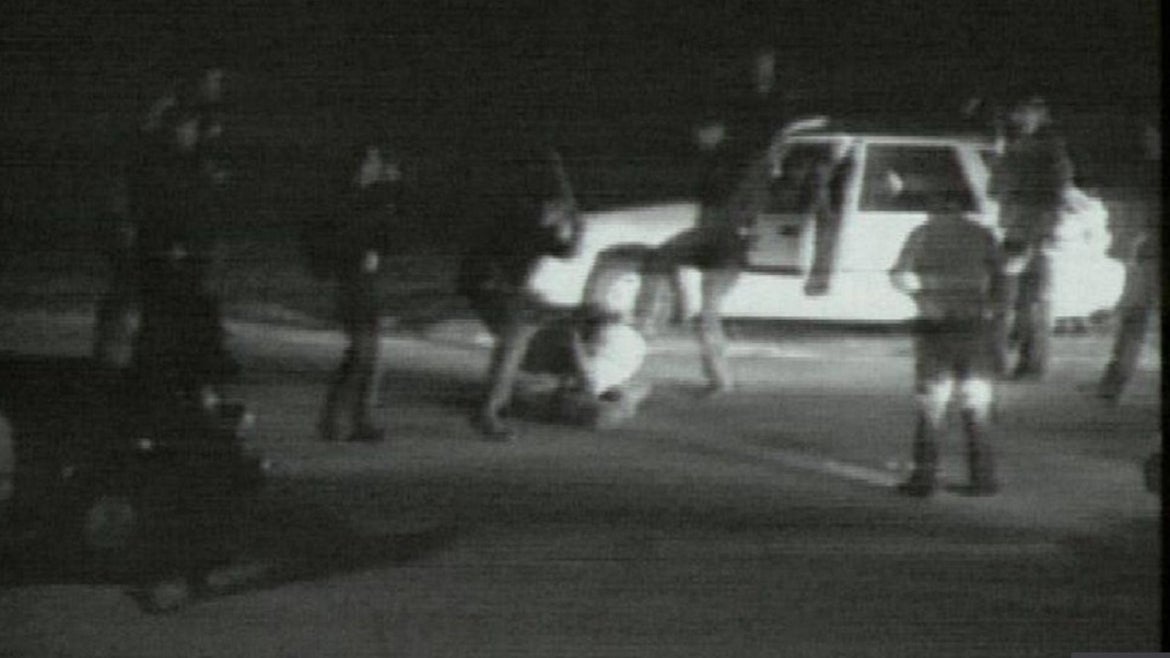George Holliday, a Los Angeles plumber, accidentally captured an event that led to the worst riots in the history of Los Angeles.
George Holliday, the Los Angeles plumber who videotaped the police beating of Black motorist Rodney King, accidentally changing history and garnering unwanted fame, has died from COVID-19, a friend announced. He was 61.
Holliday died Sunday at a Los Angeles hospital, where he had been for more than a month, according to friend and coworker Robert Wollenweber,. He was not vaccinated and had been on a ventilator after suffering pneumonia, Wollenweber said.
Holliday had been in bed when he heard police sirens outside his Lake View Terrace home on March 3, 1991. He got up and grabbed his Sony Handycam, which measured more than a foot long, and began filming a group of Los Angeles Police Department officers who were kicking and beating King with batons and firing a Taser at him as he laid on the ground.
The beating followed a high-speed freeway chase.
The grainy, black-and-white video became ubiquitous and was the key piece of evidence against four officers charged in state court with beating King. After a jury acquitted the officers, Los Angeles set fire to itself in three days of rioting in 1992 that killed more than 60 people and caused nearly $1 billion in property damage.
Though he did a few media interviews, Holliday largely eschewed journalists who deluged his home, prompting his wife at the time to leave him.
He had tried to alert the LAPD, days after the beating, that he had videotape of the incident, but a dispatcher hung up on him, he said at the time. He took the video to his favorite television station, KTLA-TV, which paid him $500 for the roughly nine minutes of video. The station, in turn, shared the footage with CNN and from there, it was beamed around the world.
Last year, Holliday put the 30-year-old camera, which no longer worked, up for auction. The starting bid was $225,000. It is unclear if the device was sold.
He never profited from the video, which helped start the avalanche of citizen journalism that would come to dominate social media, he told The New York Times last year. And he certainly never thought his camera, which he'd bought only weeks before, would end up changing world events.
"You know how it is when you have a new piece of technology," he told The Times. "You film anything and everything."
Related Stories






